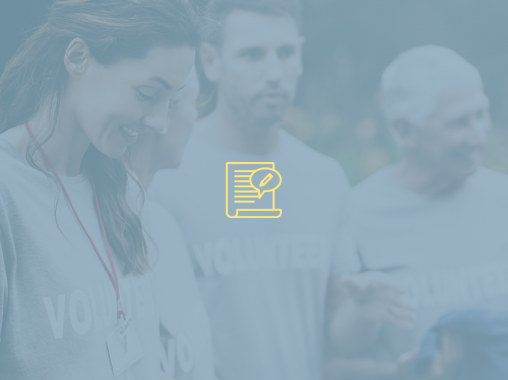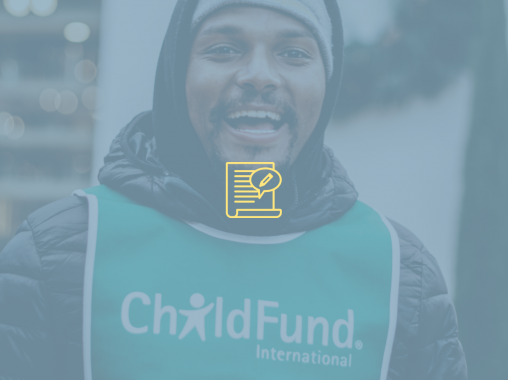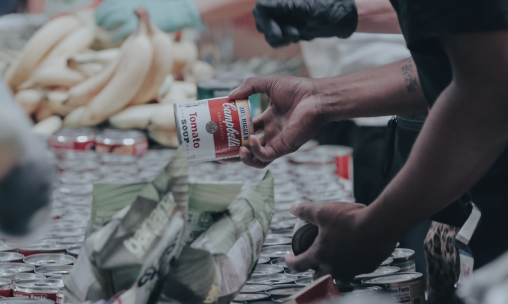April 2021
EY and other leading companies are joining newly launched AI-enhanced matchmaking marketplace whatimpact.com, to efficiently and transparently deliver social value through their CSR programmes.
UK tech start-up whatimpact is an innovative platform that matches companies and grant-makers with charities and social enterprises in a strategic, efficient and transparent way. It sets a new precedent in how Company Social Responsibility (CSR) and social value is established, managed, and reported on – all hosted on the whatimpact platform. The platform is a solution for organisations that want to deliver social value and make a difference.
Companies are increasingly committed to engaging with societal issues in a meaningful way and whatimpact is a tool to help manage the hard work. The platform matches companies according to their goals for social impact, offers easy to use due-diligence templates and streamlines impact reporting. The platform is also a solution for companies who want to implement strategic CSR or have to meet the requirements of the newly enhanced Social Value Act via the Procurement Policy Note 06/20.
“We are here to help save time and money for both Supporters (companies and grant-makers) and Recipients (social enterprises and charities), ensuring that the most impactful causes and projects are delivered with maximum efficiency. This benefits society as a whole. whatimpact is a fully transparent marketplace where everyone has access to the site profiles and interactions. We not only help organisations match with each other but help them report and communicate their impact to the public and other stakeholders.” Tiia Sammallahti, CEO/Founder whatimpact.com
AI matching for companies donating money, skills, products and services. The platform matches organisations based on shared values, UN Sustainability Development Goals (SDGs) and geographic needs across the country so that companies can direct donations and skills to the organisations that need them most. The whatimpact innovation caters to the needs of companies looking to strategically engage with charities and social enterprises as part of their wider mission to make a positive difference alongside their usual operations. whatimpact can help enable any size or type of company to deliver social value based on their strategy and goals. Companies involved in the initiative include EY, McLaren, Brewin Dolphin and Engie, alongside a number of SME’s. They are all offering very different forms of support through whatimpact either in order to fulfil UN SDGs, meet the Social Value Act requirements, or simply engage in good practice.
Organisations across the country are benefitting from skilled EY volunteers. EY is the latest company to sign up to whatimpact’s platform, and will offer a series of business clinics to charities and social enterprises grappling with business challenges. Based on research conducted with whatimpact on the most significant pain points facing organisations, EY has developed clinics on managing finances, achieving scale and growth, and building resilience in times of uncertainty. EY will also look to offer one-to-one coaching to help those involved continue to solve their business challenges. Check out EY’s profile here.
Recipient organisations on the platform. The charities and social enterprises on whatimpact match the local and regional needs of companies, cross over with the UN SDGs and/or fit the five focus areas of the Social Value Act. Some of the charities and social enterprises involved include: Race Equality Matters (which is focused on improving equal opportunities and tackling racial inequality), the Hummingbird Project (focused on wellbeing in the workplace), and RIFT (which aims to transition ex-offenders into the construction industry) – all of which meet one of the SVA’s priority areas. Added to this, WorldVision and the Single Homeless Project are just a few of the charity names on whatimpact, aligned with the UN SDGs.
Meeting the requirements of the Procurement Policy Note. The recently enhanced Procurement Policy Note requires companies that work on Government contracts to have a social value delivery plan*, and to report back on their impact in local areas. The legislation has changed the way companies linked to the Social Value Act must report on their past, present and future impact and whatimpact also caters to these needs.
“EY has set an ambitious global target to positively impact one billion lives by 2030 through our Global Corporate Responsibility Programme, EY Ripples. By working with whatimpact, we hope our people across the UK will be able to use their professional skills to help more charities and social enterprises overcome some of the business challenges they face, enabling them to have an even greater impact on the people and communities they work with.” Gavin Jordan, UK Financial Services Chief Operating Officer, EY
Open data and transparency. whatimpact is an advocate for transparency with public profiles on its platform for all users and with information on donations, partnerships and the impact being made together. Supporters (companies and grant-makers) can post resource offers (money, skills, product and service donations) on their public profile. Recipients (charities and social enterprises) can then apply for the resources they need. Both Supporter and Recipient profiles offer transparent data pulled from the Charity Commission, the OCSR, 360Giving and Companies House. whatimpact membership packages offer companies a targeted matching process with due diligence procedures and globally valid impact reporting tools, which provide evidence and communicate the impact of a company’s contributions.
NOTES-TO-EDITORS
The announcement of changes to the Public Procurement Note
The challenges whatimpact sets out to combat are:
- 50% of charities admit to accepting time donations (volunteers) from their CSR partners out of obligation, when in fact it has little impact and often costs them resources
- 5% of charities get 70% of the sector income
- Charities use £3.2 billion annually to obtain donations. £1.1 billion of this is used to apply for grants
- 10% of charities are currently mentored by company representatives whilst over 45% claim they would value this
- Only 40% of charities receive skills-based volunteering but 70% need it
www.whatimpact.com BRAND VIDEO
For more information and general press enquiries email peter.cuthbertson@eastofeden.london
whatimpact background
Testimonials
“whatimpact is a great marketplace for purpose-driven start-ups like us to find and get matched with charities that are aligned with our mission.” Miia Kankaanpaa, Chief Commercial Officer, Lune Group Ltd
“We joined whatimpact to find local environmental charities to volunteer with as a team. The shareable profiles and video greetings celebrating the matches help us communicate our company social mission in a new way.” Jonny Page, Sustainable Finance – Investments & Partnerships, Cyan Finance
“We develop emergency communication technology devices for the most vulnerable people. We joined whatimpact to match with the charities who will benefit the most from our donations. The process was quick and easy and saved time and money as we do not need to seek partners elsewhere. Now, more charities, and more vulnerable people will have access to our personal safety gadgets. Thanks, whatimpact!” Peter J. Woods, Founder, Handi SOS
“As a not-for-profit Social Enterprise working with people with convictions, we are very interested in exploring potential long-term partnerships with organisations who share our values and who see the value in investing time and funding into this marginalised group. Whilst we can see the obvious impact that our work has on individuals and their families as well as the wider community, we are also interested in a formal evaluation of the impact that our work has.” Andy Gullick, Chief Executive, RIFT Social Enterprise
“We fund research into secondary spread breast cancer, the main cause of breast cancer-related deaths. We like the whatimpact concept, having your projects in one place for companies and organisations to match with. Their CSR plans are laid out as to who they would like to support and what projects their staff and customers are interested in. It’s a time-effective way to match a cause with a pledge. This service saves us valuable time in searching for grants, grants that match our criteria and the time it takes to fill out forms with repetitive information.” Kelly Gibson, Head of Fundraising, Against Breast Cancer
“We are desperately seeking partners that share our ethos and I think that whatimpact are going to enable us to reach parts we’ve never reached before. It allows us to share some of the learnings we have with others and help us to grow. This, because many of the things we are doing are hugely scalable, but we need the right partners to make this happen!” Ken Dunn, Chairman of Africa’s Gift Limited
“We joined whatimpact not only to gain voluntary support from companies or grant-makers, but also to promote our commercial offering. As a social enterprise we sell books and coaching courses specifically for women, most predominantly mums and carers, who have a problematic relationship with alcohol and provide support and resources in a safe and respectful way, focussing on their strengths and needs. It’s our mission to provide this opportunity for financially challenged women to access all our services at Love Sober in the company of like-minded and supportive women long term and live happier, more empowered lives being able to self-advocate and embrace positive sobriety and self-care as mental health tools and life skills” Kate Baily, Founder, Lovesober.com
The whatimpact whitepaper
A whitepaper from whatimpact, entitled Improving Impact Creation: Rethinking Private and Third Sector Integration, outlines the changes that need to happen in CSR and grant-making in the journey towards a sustainable future, defined by the UN Sustainability Goals. whatimpact are determined to help us all make a significant step towards sustainability and transparency. The whatimpact white paper sets four clear goals for the future of CSR and grant-making – these are in the notes-to-editors.
- Generate a mindset change when it comes to philanthropy and giving. We should turn our attentions away from categorising companies as the third, public or private sector. Instead we should look at the affinities of those offering resources (Supporters) and compare them to those seeking resources (Recipients). A new way of looking at these relationships offers more effective avenues for change.
- Bridge the gap between companies and charities. We still see companies implement CSR programmes as tick-box exercises rather than strategic, mutually beneficial partnerships. Relationships should be genuinely engaging for all stakeholders, harnessing skillsets and shared values. Companies are increasingly being held to account for socially responsible policies – by their employees and customers. We must interrogate how these partnerships can be more effective.
- Reconceptualise the funding landscape. It considers the ways grant-makers as trusts and foundations operate inefficiently and what changes in mindset, tools and processes would help to fund social value organisations more transparently, efficiently and democratically.
- Set impact goals, measure them and report on them in comparable and transparent ways. Standardise the evaluation process to be clear and easy for all stakeholders (on both the Supporter and Recipient side) to access and read. Celebrate success in a way that benefits all parties and inspires further innovation.






